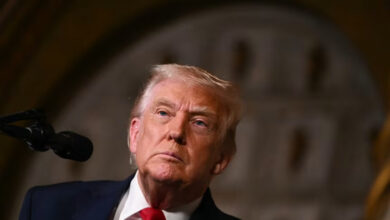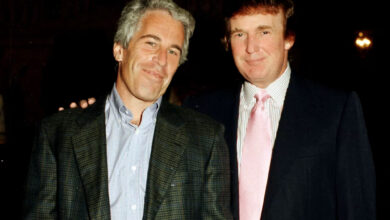
WASHINGTON (Reuters) – US sanctions against Russia tied to a nerve agent attack in Britain, which were announced earlier this month, will officially take effect on Monday, according to a notice posted on Friday at the Federal Register.
The measures will terminate foreign assistance and some arms sales and financing to Russia, as well as deny the country credit and prohibit the export of security-sensitive goods and technology.
They will be formally published and come into effect on Aug. 27, according to the notice in the register, a daily catalog of actions and regulations at government agencies.
Plans to impose the sanctions, which add to a raft of existing US sanctions against Russia, were announced by the Trump administration on Aug. 8 for what the State Department said was Moscow’s use of a nerve agent against a former Russian agent and his daughter in Britain.
Sergei Skripal, a former colonel in Russia’s GRU military intelligence service, and his 33-year-old daughter, Yulia, were found slumped unconscious on a bench in the southern English city of Salisbury in March after a liquid form of the Novichok type of nerve agent was applied to his home’s front door. Both survived the attack.
The US sanctions would cover sensitive national-security controlled goods under the 1991 Chemical and Biological Weapons and Warfare Elimination Act.
A second batch of penalties will be imposed after 90 days unless Russia gives “reliable assurance” that it would no longer use chemical weapons and allow on-site inspections by the United Nations or another international observer group.
Space flight activities, government space cooperation and areas covering commercial aviation safety would be exempted from the limits, according to the notice in the Federal Register, which said the exemptions are “essential to the national security interests of the United States.”
Urgent humanitarian assistance and food would also be allowed, the notice said.
The measures will add to existing US sanctions on Russia, including those imposed for its alleged meddling in the 2016 US presidential election.
Moscow has denied involvement in the nerve agent attack in Britain, and has also denied interference in the 2016 election.
Reporting by Lisa Lambert and Lesley Wroughton; Editing by Frances Kerry




